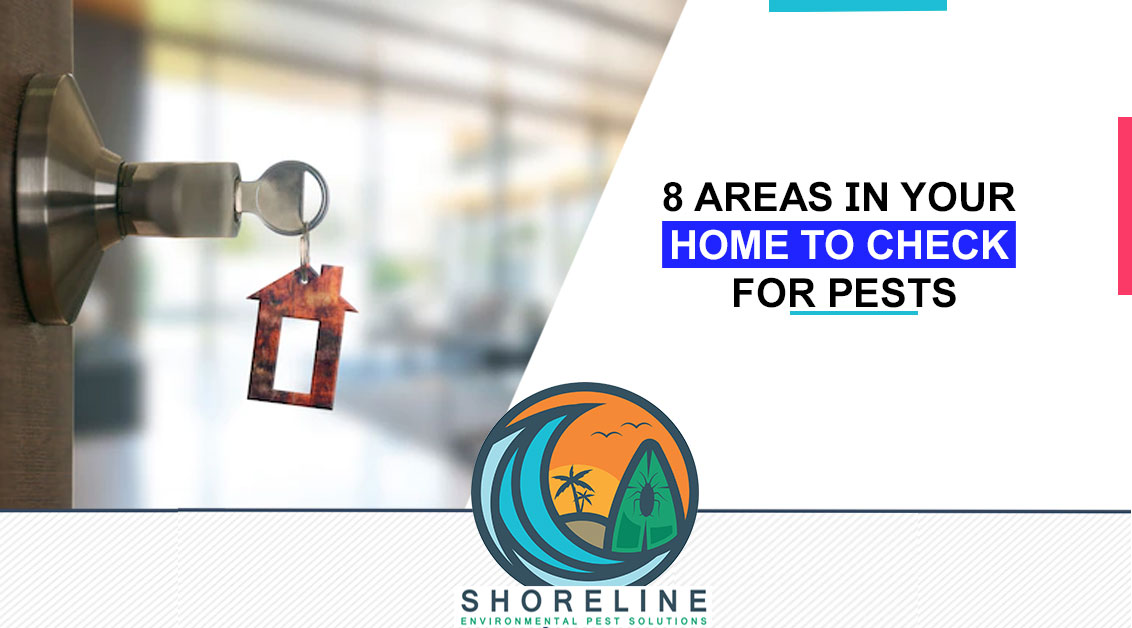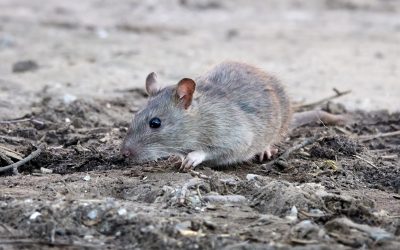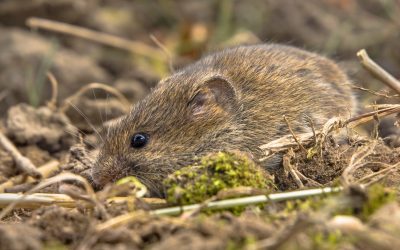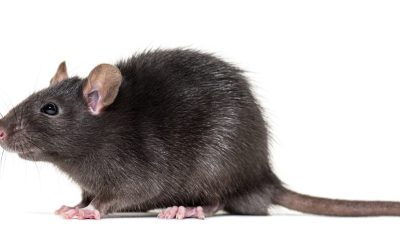Pests can invade any part of your home, and it’s essential to know where to look for them. In this blog post, we’ll list the eight areas in your home where pests are most likely to build their home or colony and provide tips on how to deal with them. Whether you’re fighting bugs in your living areas, getting rid of rodents in your kitchens and bathrooms, exterminating ants in your home, or trying to avoid pest damage in any other part of your house, read on to learn more!
Living room
Some pests, such as ants and cockroaches, prefer to live in warm areas close to human warmth, and the living room is a likely location for them to build their nests or colonies. To prevent pest damage and ensure your family enjoys a relaxing time spent in the living room, take these steps:
- Inspect your furniture for signs of infestation, including ant hills and cockroach droppings. If you notice any telltale signs of an issue, remove the offending item(s) immediately.
- Check around windowsills and doors near where people spend a lot of time – these are favorite areas for pests to sneak in. If you see any evidence of an issue, seal these openings with caulk or put up screens to keep bugs out.
- Clear away clutter and vacuum regularly to remove any insects or other debris that could provide a home for pests.
Kitchens
If your kitchen is like most kitchens, it’s likely crawling with unwanted critters – rodents, termites, fleas, and so on! Pests often thrive in dirty environments, and kitchens are no exception. In addition, pests can hide easily behind piles of food or clutter. To reduce pest problems in your kitchen:
- Keep counters clean and free of clutter.
- Keep your cabinets and drawers clean and organized, particularly if you have a lot of food or cooking supplies stored inside.
- Avoid storing food in open containers, especially near the stovetop, where pest droppings are likely to accumulate. Instead, put leftovers in covered storage containers.
- Regularly scrub floors, walls, and surfaces with a mild cleaner – this will kill any pests on your property (and make your kitchen smell nice, too!).
Bathrooms
Similar to kitchens, most bathrooms tend to be cluttered and dirty. This makes it an ideal environment for pests such as roaches, spiders, and rats – especially if there are no effective pest control measures in place. To reduce the likelihood of attracting pests:
- Keep floors clean and free of debris
- Minimize the amount of moisture that accumulates in bathrooms – this includes keeping taps closed when you’re not using them, avoiding spills on bathroom surfaces, and cleaning up after yourself!
- Use effective insecticides or traps to eliminate insects before they can cause damage.
- Keep your bathroom clean and free of clutter, especially around the toilet and shower.
- Regularly remove gross particles and debris with a vacuum cleaner – this will help reduce the potential for pests to hide and breed.
Garages
A garage is one of the most common places for pests to live. This is because garages tend to be dirty and cluttered, making it difficult for homeowners to keep an eye on their property. In addition, pests can hide easily behind piles of junk or clutter. To reduce pest problems in your garage:
- Keep floors clean and free of debris
- Remove all items from the area, including old furniture, tires, and other large objects that may provide shelter for pests.
- Use effective insecticides or traps to eliminate any insects before they can cause damage
- Regularly clean up messes, including removing leaves, debris, and clutter.
- Lock your garage when you’re not using it to prevent pest entry.
Bedroom
The bedroom is another common place for pests to live. Many homeowners neglect their bedrooms, leaving them dirty and cluttered. In addition, beds can provide shelter for insects and other pests. To reduce pest problems in your bedroom:
- Clean all surfaces – this includes the bed, closet shelves, mattresses, headboards, and closets – using a wet cloth if necessary
- Use effective insecticides or traps to eliminate any insects before they can cause damage
- Regularly remove gross particles and debris with a vacuum cleaner – this will help reduce the potential for pests to hide and breed.
Garden
Homeowners often overlook their gardens as a place where pests can live and thrive. Pests like spiders, ants, and beetles love hiding in garden plants and soil. To reduce pest problems in your garden:
- Keep the ground clean – removing debris and bugs from around plants will help keep these areas free of pests
- Plant resistant varieties of flowers and vegetables – this will help protect them from insects
- Install beneficial insects into your garden to control unwanted pests
- Keep children and pets away from the garden at all costs
Gutters, Downspouts, and Crawlspaces
Pests can enter a home through any opening in the structure, including guttering, downspouts, and crawlspaces. Pests such as ants and mosquitoes can get inside when these openings are not appropriately sealed. Follow the below listed to address these problems:
- Make sure all downspouts and gutters are clean – this will help to prevent pests from entering your property
- Seal any cracks or gaps around windows and doors – this will help to keep pests out of your home
In this blog, we’ve outlined eight areas in your home where pests can infest and how to deal with them. From living areas to bathrooms, kitchens, dining rooms, the garden, and garage, pest control is essential for every home. If certain areas of your home are proving challenging to address, it may be worth hiring a pest professional. They will have more expertise in dealing with pests and can help to ensure that the problem is properly fixed. Check our website for helpful tips and advice on dealing with pests in your home.





0 Comments